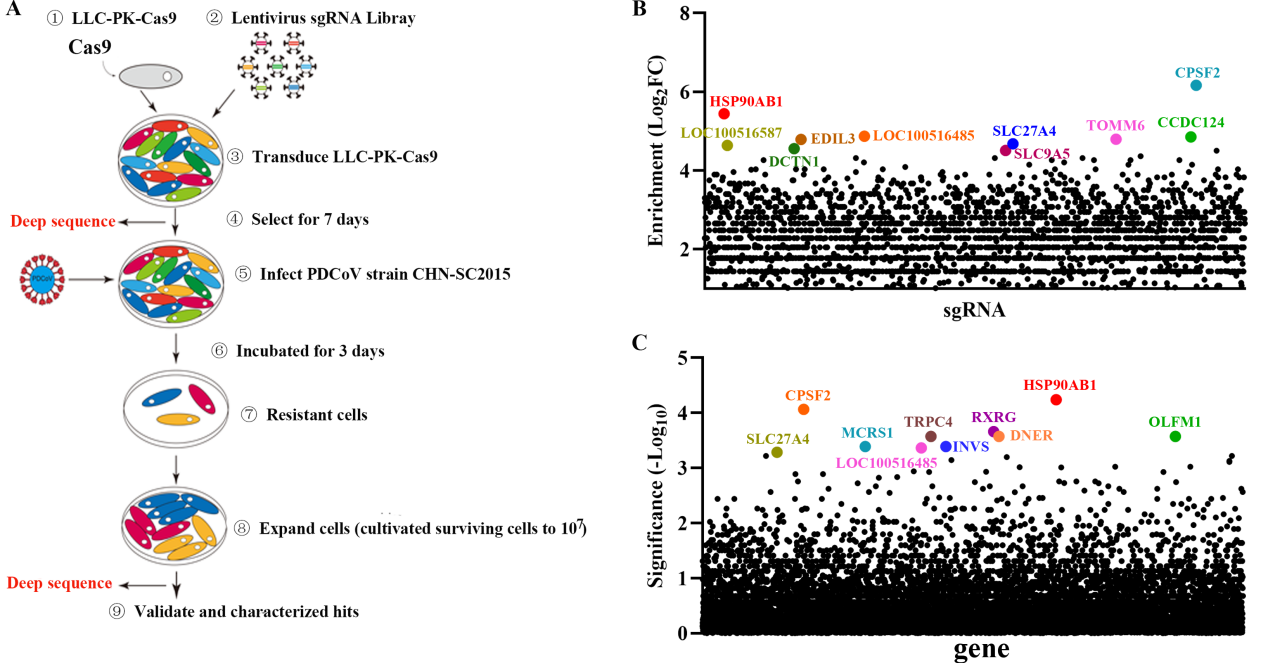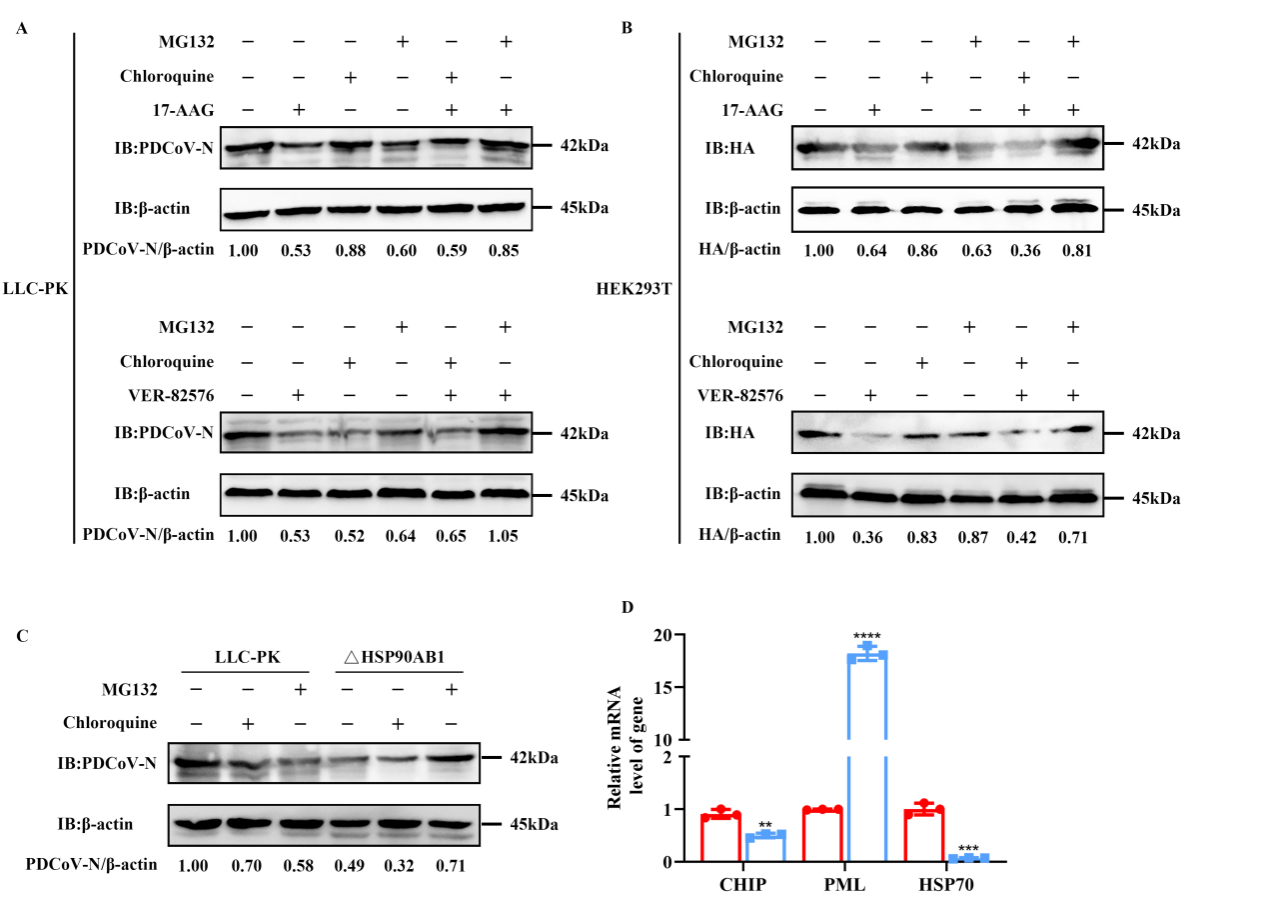
Research News
Research News
HSP90AB1 is a host factor that promotes Porcine deltacoronavirus replication
Recently, Professor Huang xiaobo` group, from the research center for swine diseases of college of veterinary medicine, published the article " HSP90AB1 is a host factor that promotes Porcine deltacoronavirus replication”published on the Journal of Biological Chemistry(online link: https://www.sciencedirect.com/science/article/pii/S0021925823025644?via%3Dihub ). In this study, the authors found that HSP90AB1 is an important host factor affecting the proliferation of Porcine deltacoronavirus (PDCoV), which is involved in maintaining the stability of viral N protein and preventing its degradation through the proteasome pathway. The first author is PhD Yujia Zhao, co-directed by Professors Xiaobo Huang and Professor Sanjie Cao. This study was supported by the National Natural Science Foundation of China (No.32172888).
Porcine deltacoronavirus (PDCoV) is an emerging enteropathogenic coronavirus. It causes mortality in neonatal piglets and is of growing concern because of its broad host range, including humans. To date, the mechanism of PDCoV infection remains poorly understood. Here, based on a genome-wide CRISPR screen of PDCoV-infected cells, the authors found that HSP90AB1 promotes PDCoV infection. Knockdown or knockout of HSP90AB1 in LLC-PK cells resulted in a significantly suppressed PDCoV infection. Infected cells treated with HSP90 inhibitors 17-AAG and VER-82576 also showed a significantly suppressed PDCoV infection, although KW-2478, which does not affect the ATPase activity of HSP90AB1, had no effect on PDCoV infection. The authors found that HSP90AB1 interacts with the N, NS7, and NSP10 proteins of PDCoV. The authors further evaluated the interaction between N and HSP90AB1 and found that the C-tail domain of the N protein is the HSP90AB1-interacting domain. Further studies showed that HSP90AB1 protects N protein from degradation via the proteasome pathway. In summary, these findings provide new insight into the mechanisms of PDCoV-host interactions and contribute to providing new host targets for PDCoV antiviral research.

Figure 1. CRISPR screening reveals host factor HSP90AB1 is associated with PDCoV infection

Figure 2. HSP90AB1 protects PDCoV N protein from degradation via the proteasome pathway






 028-86296382
028-86296382  No. 211 Huimin Road, Wenjiang District, Chengdu, Sichuan Province
No. 211 Huimin Road, Wenjiang District, Chengdu, Sichuan Province 